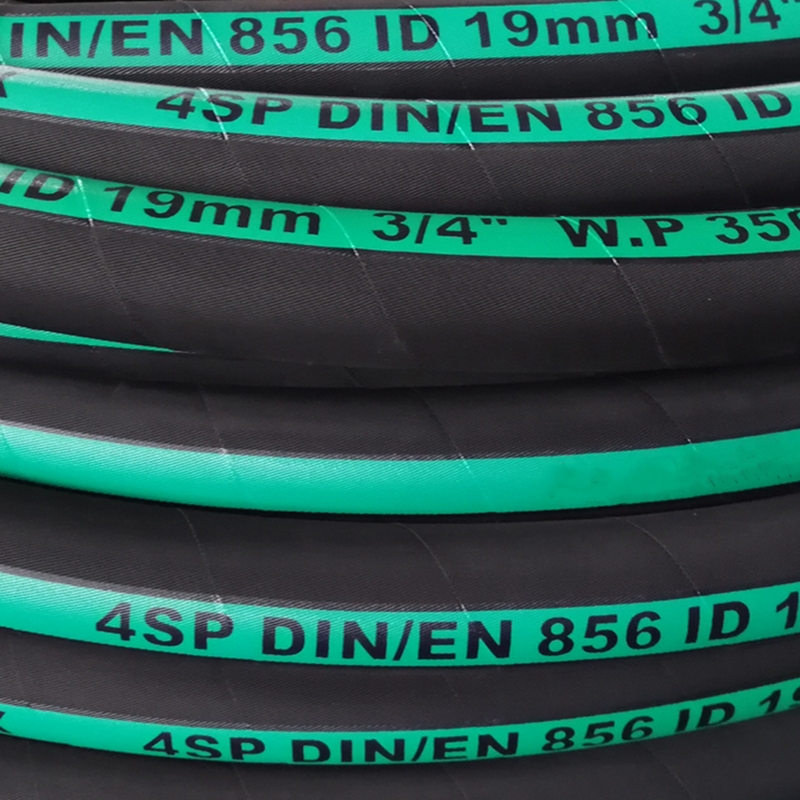Aug . 14, 2024 06:31 Back to list
Durable and Flexible High-Quality Resin Hoses for Efficient Industrial and Home Use Solutions
High-Quality Resin Hose The Future of Fluid Management
In the ever-evolving landscape of industrial applications, the demand for high-quality materials is paramount. One such material that has gained considerable attention is the resin hose. With advancements in technology and manufacturing processes, resin hoses have emerged as a superior alternative to traditional rubber and plastic hoses. This article delves into the benefits of high-quality resin hoses, their applications, and factors to consider when selecting the right hose for your needs.
What is a Resin Hose?
A resin hose is typically made from thermoplastic or thermosetting resins, offering a combination of flexibility, durability, and resistance to various chemicals. Unlike traditional hoses, which can degrade over time, high-quality resin hoses maintain their integrity and performance under extreme conditions. This makes them ideal for a wide range of applications, from transporting industrial chemicals to fluid management in agricultural settings.
Benefits of High-Quality Resin Hoses
1. Durability High-quality resin hoses are engineered to withstand significant wear and tear. Their resistance to abrasion, punctures, and cuts ensures a longer lifespan compared to traditional hoses, reducing the need for frequent replacements and thereby lowering maintenance costs.
2. Chemical Resistance One of the standout features of resin hoses is their ability to resist a wide array of chemicals. This makes them suitable for industries that transport aggressive substances such as solvents, acids, and alkalis. Ensuring compatibility with specific fluids is crucial, and high-quality resin hoses are designed to handle various chemical exposures.
3. Weather Resistance Exposure to UV rays and harsh environmental conditions can degrade many types of hoses. However, high-quality resin hoses are often formulated to withstand temperature extremes and UV radiation, making them ideal for outdoor applications.
high quality resin hose quotes

4. Lightweight Design Unlike some traditional hoses that can be cumbersome and heavy, resin hoses are typically lighter and easier to handle. This ease of use can enhance productivity, particularly in environments where mobility and flexibility are essential.
5. Customizability High-quality resin hoses can be manufactured to meet specific requirements. Whether it's a unique diameter, color, or flexibility level, industries can obtain hoses tailored to their precise specifications, ultimately leading to enhanced operational efficiency.
Applications of High-Quality Resin Hoses
The versatility of resin hoses makes them suitable for a myriad of applications. In the agricultural sector, they are used for irrigation systems, ensuring that water is transported efficiently without risk of contamination. In the chemical industry, resin hoses facilitate safe handling and transfer of hazardous materials, mitigating risks of spills and leakage. Additionally, they find a place in food and beverage applications where hygiene and safety are critical.
Choosing the Right Resin Hose
When selecting a high-quality resin hose, several factors should be considered
- Compatibility Ensure the hose material is compatible with the fluids being transported. - Pressure Ratings Choose a hose that can handle the pressure requirements of your application. - Temperature Range Verify that the hose can withstand the temperatures of your specific use case. - Length and Diameter Determine the appropriate size based on your system requirements.
In conclusion, high-quality resin hoses represent a significant advancement in fluid management solutions. Their durability, chemical resistance, and versatility make them an invaluable component across various industries. As technology continues to progress, the adoption of these hoses will likely increase, leading to more efficient and sustainable practices in fluid transportation and management. Investing in high-quality resin hose systems is not only a decision for today but also a step toward a more resilient and productive future.
-
Best Four Steel Wire Spiral Hose Hydraulic R12 – Durable High-Pressure Hose Manufacturer
NewsJul.08,2025
-
High-Quality 1/4 Hydraulic Hose – Soft, Flexible & Durable Rubber Hoses for Industrial Use
NewsJul.08,2025
-
1 1 2 Inch Hydraulic Flexible Hose - Durable, Reliable, High-Pressure Solutions
NewsJul.07,2025
-
High-Quality 1 2 Rubber Hose - Durable, Flexible Hydraulic Solutions
NewsJul.07,2025
-
Discover SAE Hydraulic Hose Types - High Quality & Durable Hoses from Leading Factory Supplier
NewsJul.06,2025
-
High Pressure Wire Hydraulic Rubber Hose Supplier Durable & Reliable 1SN Hose Solutions
NewsJul.06,2025
